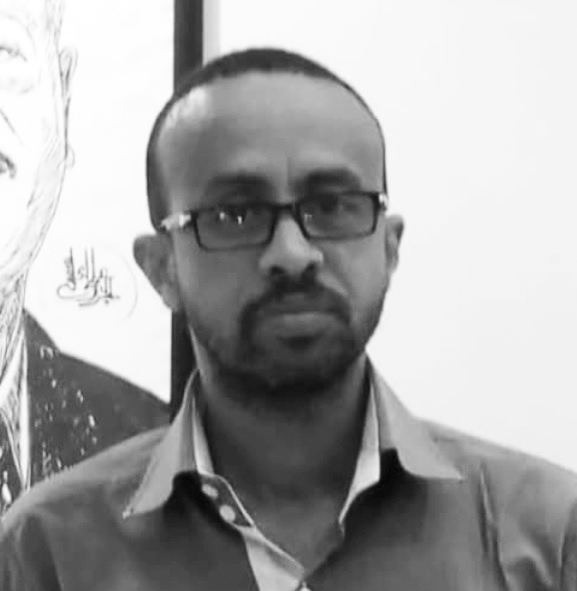
Sudanese: The Oppression of War and the Voluntariness of Return
Khalid Massa
The speeches and statements of Sudanese government officials have often appealed to the emotions of Sudanese citizens living in refugee camps and displacement sites, urging them to catch the train of “voluntary return” to their villages, towns, and homes. Charitable organizations have also raced to offer free trips to encourage this so-called voluntary return. However, last April, the Khartoum State government issued a directive ending the leave granted to civil servants, requiring them all to return to work by mid-June 2025.
The state government had to issue a quick clarification, published by the official news agency SUNA on April 23, stating through its spokesperson that unit directors would be allowed to assess the circumstances of those who had not regularized their status by the specified deadline.
It is a matter of undeniable fact that people left war-torn cities under compulsion, after life there became impossible due to a collapse of security, the near-total collapse of essential services like water and electricity, and the complete shutdown of the health and education sectors. Their exit from the war zones was purely to save their lives, into the unknown realms of displacement or refuge.
Reading the decision above, it is clear it will affect the majority of Sudanese internally displaced persons (IDPs) and refugees who are originally residents of Khartoum State, the most populated state in Sudan, and also many civil servants in ministries and government units, given the concentration of government services in the capital. This raises a fear that the decision may be born of the same political logic that serves wartime political messaging, rather than addressing the humanitarian dimensions emphasized by international law in its definition of IDPs and refugees. The UN Special Rapporteur on the human rights of internally displaced persons, Paula Gaviria, stated to the UN Human Rights Council in its 79th session:
“According to the Guiding Principles on Internal Displacement, the primary duty and responsibility rests with the competent authorities to create the conditions and provide the means for IDPs to voluntarily return, in safety and with dignity, to their homes of origin.”
Sudanese citizens receive this decision with the words of the federal Minister of Health still in their minds, warning families against rushing back to Khartoum State until all hazards have been removed and decontamination completed, especially given reports of damage to laboratories, fears of radioactive contamination, and widespread corpses.
We believe challenges face not only the citizens’ return to Khartoum, but also the government’s own return to operate its units and departments by the set date, as essential services (electricity and water) have not recovered from the devastation left behind by the Rapid Support Forces. The city center of Khartoum, which hosts most government offices, was a fierce battleground, leaving many buildings unfit for use any time soon.
It is the same Khartoum State where the RSF controlled large swathes without considering anything but military occupation, neglecting to manage electricity, water, hospitals, markets, or education and health facilities. Civilian life there was the first casualty of war, and the so-called “civil administration” the RSF announced in November 2024 achieved nothing. War turned the state into an uninhabitable, citizen-repelling environment, and the idea of a civil administration served only political propaganda, not the needs of citizens living in displacement and exile.
Decisions affecting Sudan’s war conditions, especially those directly touching the lives of citizens who have not yet escaped their suffering simply by reaching places of displacement or refuge, and who face another war no less brutal than the one in their cities, must be made with a sensitivity that recognizes their right to a truly voluntary return—free of any coercion linked to employment, state services, or loss of benefits due to their displacement.
A decision like that issued by the Khartoum State government should not be a top-down directive that only boosts its own political standing; rather, it must involve the citizens themselves—IDPs and refugees—as genuine stakeholders, because they are the ones who must weigh the timing and conditions of voluntary return, and they are essential partners of the state in determining when normal life can resume.
War, by its nature, is an extraordinary circumstance. Khartoum State, more than any other state, has suffered massive, systematic destruction. It would not shame its government to recognize the true scale of this devastation and set priorities for restoring life, because what has been lost in two years of war and destruction cannot simply be rebuilt all at once, especially under limited resources and an economy still bearing the cost of an ongoing war.
The security of citizens must be an absolute priority, distinct from the question of services—which, in our view, are currently little better in the displacement areas than in Khartoum itself. Therefore, before the state government issues official decrees expecting citizens to comply submissively, it should send genuine messages to displaced and refugee communities that reassure them and make their return to Khartoum truly voluntary, taking into account the damage to police and security institutions, their weapons, mobility, transportation, and human resources, as well as the heightened responsibilities in the post-war period given the spread of weapons and drugs, the prison breaks, the escape of criminals, the rise of incitement and hate speech, and growing social resentment and lawlessness.
The policymaker in this difficult time that Sudan is experiencing needs to think outside the box of war and its imposed conditions, and to consider that a state like Khartoum, even before the war, was in need of a fundamentally different plan for its infrastructure, urban development, population distribution, and service networks, as well as a reassessment of the formal state structure and its cultural patterns, including its buildings, roads, and bridges. There should be visions for reconstruction projects based on available funding, drawing on regional and global experiences of post-war capitals—without making the empty slogan “restoring it to its former glory” the only goal.


